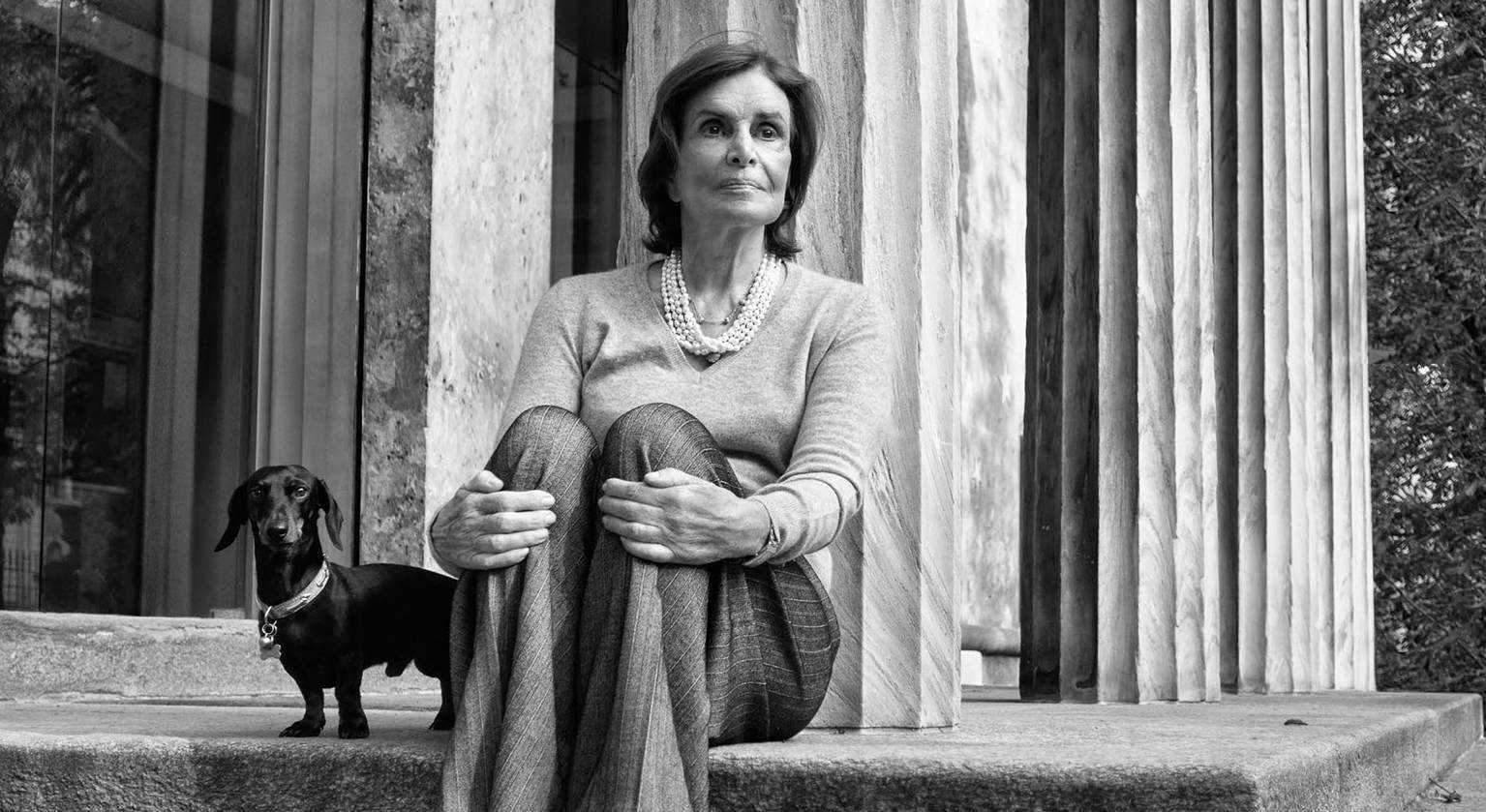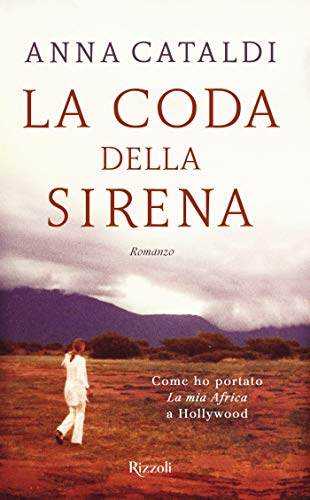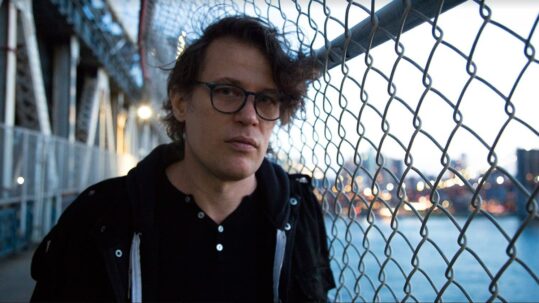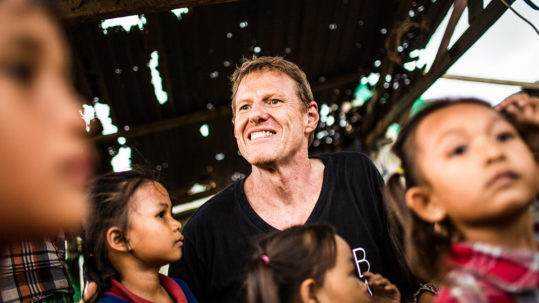
14 Jan Anna Cataldi | Out of Africa
Photo by Maki Galimberti
Anna Cataldi | Out of Africa
A few weeks ago, I was introduced to Mrs. Anna Cataldi by a mutual friend. I have been an admirer of Mrs. Cataldi’s accomplishments for a long time, so the prospect of interviewing her was very exciting to me. I remember the first time I saw Out of Africa at the movie theater in 1985, I was so moved that I went back to see it again the next day and a few days later. Then, the film went on to win seven academy awards, launching Meryl Streep’s career and strengthening Robert Redford’s stardom. Little did I know at the time that Out of Africa would have never been made without Mrs. Cataldi’s significant contribution. Her latest book, La coda della sirena (The Tail of the Siren), recounts her journey from the moment she discovered Danish writer Karen Blixen to producing a film based on her life in Kenya. Besides her work in the movie industry, Mrs. Cataldi had a full career as a journalist. She is the author of several books, was a Goodwill Ambassador for the World Health Organization, and was one of the ten original United Nations Messengers of Peace appointed by UN Secretary-General Kofi Annan. Despite the challenges she had to overcome, Mrs. Cataldi led a life that many would view as inspirational, which will undoubtedly be the subject of a second interview. As for now, here is the tale of the undaunted determination of a woman who never let rejection deter her from pursuing her dream.
By Victoria Adelaide | Jan 13. 2020
Victoria Adelaide: When did you first hear of Karen Blixen?
Anna Cataldi: The first time I heard about Karen Blixen was through an exhibition of photographer Peter Beard that I attended in New York in 1977. It was about Africa and Karen Blixen. I had no idea who she was, and all these names, Denys Finch Hatton and Kamante, did not mean anything to me. Somehow, these photographs fascinated me, and step by step, I discovered more about Karen Blixen. Ironically, all the people I spoke to, including my sister, knew who Karen Blixen was.
VA: What kind of fascination ignited your desire to make a movie about Karen Blixen’s life?
AC: In 1978, I took a journey to East Africa with my five-year-old daughter Jacaranda. First, we went to Sudan, and it was absolutely captivating, so pristine. Then we went to Kenya, but tourism was already there. I started to read Karen Blixen’s book, Out Of Africa, and through her story, I discovered what Kenya was like back then. It was so original and authentic. However, my interest broadened way beyond Karen Blixen’s existence; it was the atmosphere that she described that was incredible. So, I started to think: How could I recreate this atmosphere? Why not do a movie about life in East Africa at the time. I began to read Silence Will Speak, a study of the life of Denys Finch Hatton and his relationship with Karen Blixen, which was written by Kenya-based British author Errol Trzebinski. The idea of doing a movie on Karen Blixen’s book was already around in Hollywood. In her book, a love story is not mentioned, and to do the movie, we needed a love story. Out Of Africa is an excellent literary book, but the material we needed for the film was in Silence Will Speak. So, I contacted Errol Trzebinski.

VA: At the time, you were going through a lot of challenges in your personal life. Do you think that the vulnerability you may have experienced somehow fueled the energy that was necessary to carry out a project of this magnitude?
AC: Well, I was very young and quite adventurous. I immersed myself in this project, and I always had, as we say, the call of the wild. I think that it was me reacting to the very bourgeois lifestyle I had in Italy. I wanted to discover different cultures and new horizons. Then I found myself invested in the project, which was absurd, as everybody was trying to discourage me. However, I am stubborn, and when I start something, I like to move forward with it.
VA: You met Heinemann publishing house managing director Charles Pick in London and you wanted to get the rights for the book Silence Will Speak. To do so, you needed £2000 immediately, so you gave away your Bvlgari watch to your friend to get the money! (laughs)
AC: Yes, that really was something. (laughs) But I have to say that Charles Pick was an extraordinary man. He supported me throughout the project. He was also the agent of John le Carré, Sydney Pollack, and Errol Trzebinski for Silence Will Speak.
VA: When you started approaching high figures of the movie industry in Hollywood, you faced many rejections. Can you tell us about that?
AC: I met a lot of people. The first was also my friend Audrey Hepburn. Audrey was extraordinary. She did not discourage me. She was not entirely negative, but not encouraging either. She would say things such as, “It’s very difficult, and you do not know the film industry.” However, she put me in touch with one of the greatest directors: Fred Zinnemann. Fred Zinnemann directed Audrey Hepburn in a movie in Africa called The Nun’s Story. So, when I was in London, I contacted him. He put me in touch with a scriptwriter, then the scriptwriter connected me with someone else. In New York, I also had connections. In Los Angeles, I met with other people and, among them, some movie producers were very rude. They did not understand the project at all. I remember this great director, Ray Stark, telling me, “Oh my dear, no one will ever be interested to know what happened in Kenya between a Danish woman and a British gentlemen. Nobody will care!” Thinking about it, now safaris in Kenya are a trend. Recently, a friend of mine said to me, “They should be grateful to you, Anna. It’s because of Out Of Africa that the trend of getting dressed to go on a safari started and women dreamed of going on a safari with Robert Redford and having him wash their hair.” (laughs)
VA: Oh yes, that’s true! (both laughing) All right, then Clara Svendsen, who was Karen Blixen’s secretary and her will executor after her death, informed you that The Rungstedlund Foundation (known as Karen Blixen’s museum) decided to give you the rights for Out Of Africa and for other books they felt were necessary for the project.
AC: Yes, because the point on which they all agreed was that the title Out Of Africa was very important. So, having this title, from a movie point of view, was essential, and almost more vital that the story that was told in the book.
VA: Then you moved forward with the project and you decided to write the treatment for the movie. Why?
AC: I went twice to Kenya with Errol Trzebinski. She took me everywhere. We went to the archives, we saw old pictures, and we met people who knew Karen Blixen. Throughout this project, I had collected so much information that I had an incredible amount of material in my hands. I needed to do something with it.
VA: You also had to fight when Columbia started to shelve the project. What happened?
AC: Yes. What happened was that Columbia Pictures was bought by Coca Cola. It was very difficult to get money out of Africa, so the people at Coca Cola felt that even if they sold a lot of Coca Cola in Kenya, it would not be possible to invest the earnings into a movie. However, someone mentioned that among the assets Coca Cola owned, they bought a movie company. They then did my contract for the movie treatment that I wrote and for the rights I had for the book. Then, they started to do another movie, Sheena, Queen of the Jungle, which was a complete disaster. It was not a good movie and they ran through all the problems you can imagine. Afterward, Coca Cola decided they would never do another movie in Kenya. In the meantime, the project was already in the hands of Sydney Pollack.
VA: Now that Sydney Pollack was involved, did things start to change?
AC: Actually, the one who really wanted and insisted to do the movie was Stephen Grimes, Sydney Pollack’s set designer and artistic director. Pollack wasn’t that enthusiastic about doing the film but Stephen Grimes persuaded him. Grimes did all of Pollack’s best movies and, after his passing, Pollack never did a film of the same caliber. Columbia didn’t want to do the movie, so Pollack reached out to Universal and they produced the film.
VA: What was the turning point for the movie finally being made?
AC: The turning point for the movie being made was when Robert Redford said OK. And even if he was not exactly looking like the real Denys Finch Hatton, who was very old, thin, and a bit bald, it was Robert Redford and he was a huge star.
VA: What’s interesting is that in the beginning, they didn’t want to do the movie in Kenya but in Hawaii. (smiles)
AC: Yes, they wanted to do it in Hawaii. I was horrified. Thinking back at the beginning of this adventure, I was dreaming of a little movie in black and white. However, I was now finding myself in front of Sydney Pollack who wanted to do Out Of Africa in Hawaii, saying the landscapes could be built and that we could bring the animals and so on.
VA: From the moment you started this project to the moment you saw the film on the big screen winning it all, seven years had passed.
AC: Yes, but that’s not something that is extraordinary. Some movie projects can last ten years or more before the movie is made.
VA: You explain in your book that your association with jet setters worked against you when you started approaching prominent producers and filmmakers in Hollywood. Why was that?
AC: Yes, because people like to classify others socially. I was not from the film industry. I was coming from a different social circle and they didn’t like to see someone changing their social classification.
VA: When Out Of Africa got released, won seven academy awards, and became the legendary movie that we know, did some of the people who tried to discourage you come back to you and what was their feedback?
AC: Yes, some of them did come back to me. They were amazed by how it all turned out because, in the first place, they never believed the movie would be made and certainly not that it would become such a success. I could have continued to work in the film industry. Out Of Africa gave me credentials and I knew many people. However, my children were in Milan and, in Milan, we didn’t do movies. I decided to stay in Italy.
VA: When you look back, with the knowledge you have now, is there something you would have done differently?
AC: At the time, I was a novice and I was not ready. I think the one thing I would have done differently is to negotiate a better contract with Columbia.
VA: After the success of Out Of Africa, everybody thought you had made a lot of money but that was not the case?
AC: No, not at all. I earned practically nothing because my earnings were based on the net profit. When you earn on the net profit, you have to deduct all the expenses. It takes ages and your money never comes. The two people who earned a lot were Robert Redford and Sydney Pollack because they earned on the gross profit. Even Meryl Streep did not earn that much.
VA: Do you think this movie could have been made without you?
AC: No, I don’t think so. I did all the networking between the author of Silence Will Speak, the scriptwriter, and all the other people involved in the project. I was the one who connected the key people who succeeded in making the movie.
...The turning point for the movie being made was when Robert Redford said OK.”``




